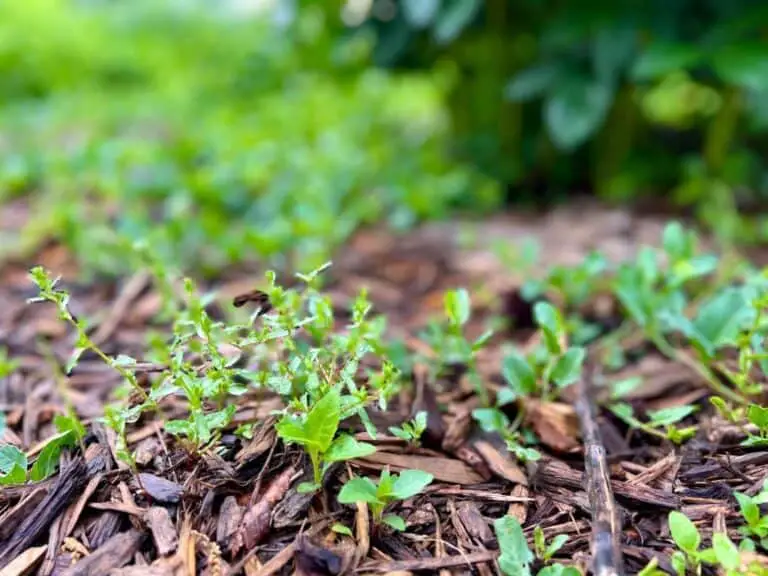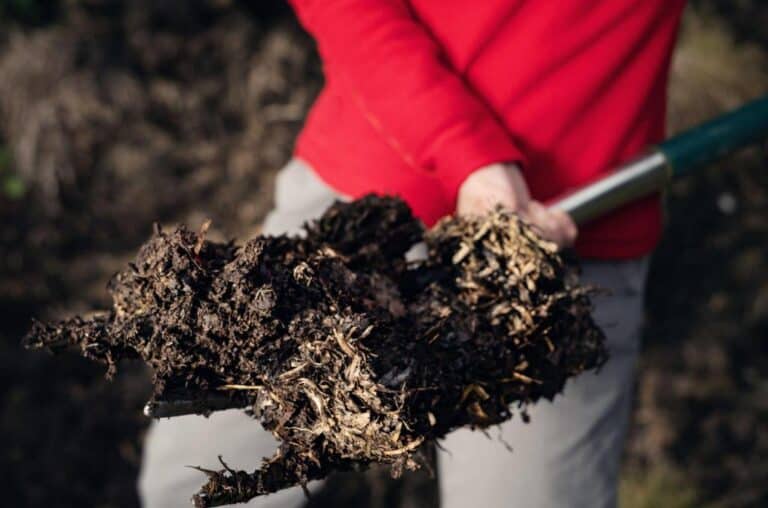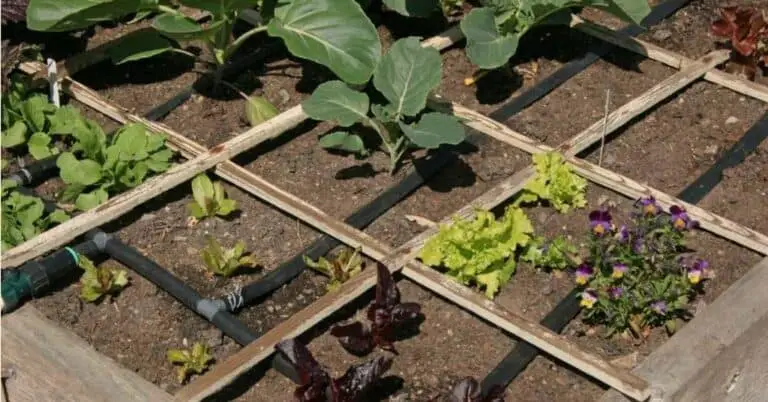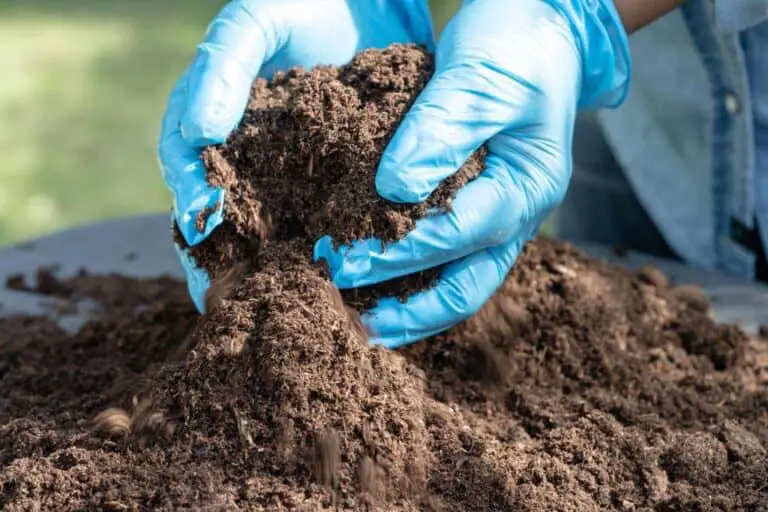Can Cotton Successfully Grow in Black Soil? From Seeds to Harvest
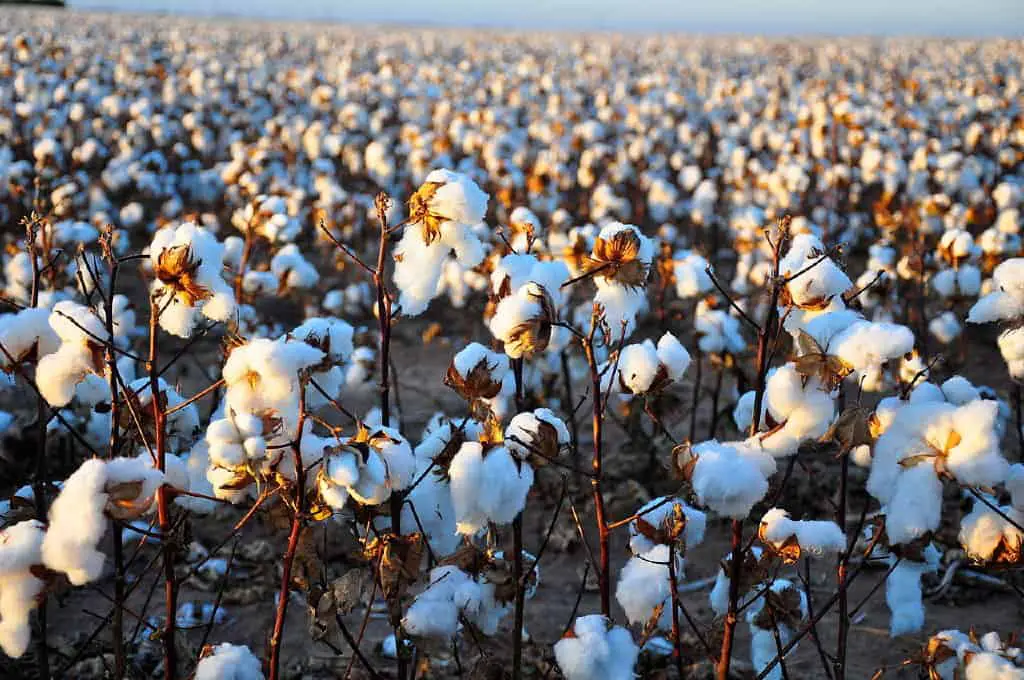
In the world of agriculture, where soil types wield immense influence, an intriguing question beckons: Can Cotton Successfully Grow in Black Soil? As we embark on a journey from Seeds to Harvest, we unveil a captivating tale of nature’s collaboration. Imagine the softness of cotton textiles intertwined with the richness of dark, fertile soil—a partnership that holds secrets waiting to be unraveled.
So, can cotton successfully grow in black soil? Yes, cotton can successfully grow in black soil. Black soil is ideal for growing cotton due to its clayey nature and high moisture retention capacity. Black soil is rich in soil nutrients like calcium, carbonate, magnesium, potash, and lime, which are essential for the growth of cotton and other crops.
Cotton, revered for its delicate fibers, has been a steadfast companion through time. Black soil, with its deep hue and nourishing properties, has nurtured countless crops. But can these two entities join forces to yield a flourishing harvest? Prepare to delve into a narrative where seeds take root, young plants thrive, and bolls burst forth, all within the nurturing embrace of black soil. This exploration promises not just insights, but a journey into the heart of sustainable agriculture’s captivating synergy.
Understanding Black Soil
Black soil, scientifically known as vertisol, is characterized by its dark color and high fertility. It holds a special place in agriculture due to its moisture retention capacity, making it an ideal medium for growing a variety of crops.
This soil type can be found in many parts of the world, including the Deccan Plateau in India, the Great Plains of the United States, and the Pampas region of Argentina.
Below are some advantages and challenges of having black soil to grow plants:
| Advantages of Black Soil | Challenges of Black Soil |
| Excellent water retention | Susceptible to erosion |
| High fertility, rich in nutrients | Prone to cracking during dry spells |
| Good aeration for plant roots | Difficulty in managing excess moisture |
| Suitable for a wide range of crops | Requires careful drainage planning |
Characteristics and Composition of Black Soil
Black soil, aptly named regur soil, boasts an unmistakable dark hue that sets it apart. Its allure lies not only in its distinctive color but also in its inherent fertility, making it a sought-after choice for cultivating crops such as cotton. This soil’s intriguing nature extends beyond appearances, encompassing a myriad of characteristics that fuel its agricultural significance.
1. Moisture Management and Expansion
One of the remarkable traits of black soil is its exceptional moisture-retention capacity. This unique ability proves invaluable in regions with irregular rainfall patterns. The soil’s propensity to swell and shrink in response to moisture variations endows it with a dynamic quality that sets the stage for successful crop growth.
2. Nutrient-Rich Reservoir
Under the surface, black soil conceals a nutrient reservoir that sustains flourishing vegetation. Bursting with essential elements like calcium, magnesium, and an array of micronutrients, it creates an optimal environment for cotton plants to thrive. This nutrient bounty forms the bedrock of vigorous growth, ultimately translating into higher yields.
3. Organic Matter and Microbial Synergy
A hidden champion within black soil is its organic matter content, which performs a dual role. Firstly, it enhances soil structure, promoting aeration and root penetration—a prerequisite for robust cotton plants. Secondly, it nurtures a bustling community of beneficial microbes. This harmonious synergy between organic matter and microbes enriches the soil’s fertility and nutrient availability.
Can Cotton Successfully Grow in Black Soil?
Cotton, a vital global crop, finds a welcoming home in the depths of black soil. The unique attributes of black soil, with its clay-rich composition and exceptional moisture retention, create an optimal environment for cotton cultivation.
Enriched with essential nutrients—calcium, carbonate, magnesium, potash, and lime—black soil nurtures not only cotton but also an array of crops such as cereals, oilseeds, citrus fruits, vegetables, tobacco, and sugarcane.
The moisture-holding prowess of black soil proves particularly advantageous for regions practicing dry farming, where water scarcity prevails. Its capacity to maintain moisture levels offers a strategic advantage, especially in areas prone to erratic rainfall patterns. However, prudent management is essential to prevent potential waterlogging, emphasizing the significance of effective drainage.
A concise comparison of cotton growth in different soil types underscores the benefits and considerations:
| Soil Type | Advantages | Considerations |
| Black Soil | High moisture retention, nutrient-rich | Risk of waterlogging, drainage is crucial |
| Sandy Soil | Excellent drainage, easy root access | Prone to leaching, lower nutrient retention |
| Clay Soil | Good nutrient retention, moisture | Compaction, drainage improvement needed |
Besides cotton, black soil is also suitable for producing cereals, oilseeds, citrus fruits and vegetables, tobacco, and sugarcane. The moisture retentiveness of black soil makes it appropriate for dry farming.
Advantages and Challenges of Cultivating Cotton in Black Soil
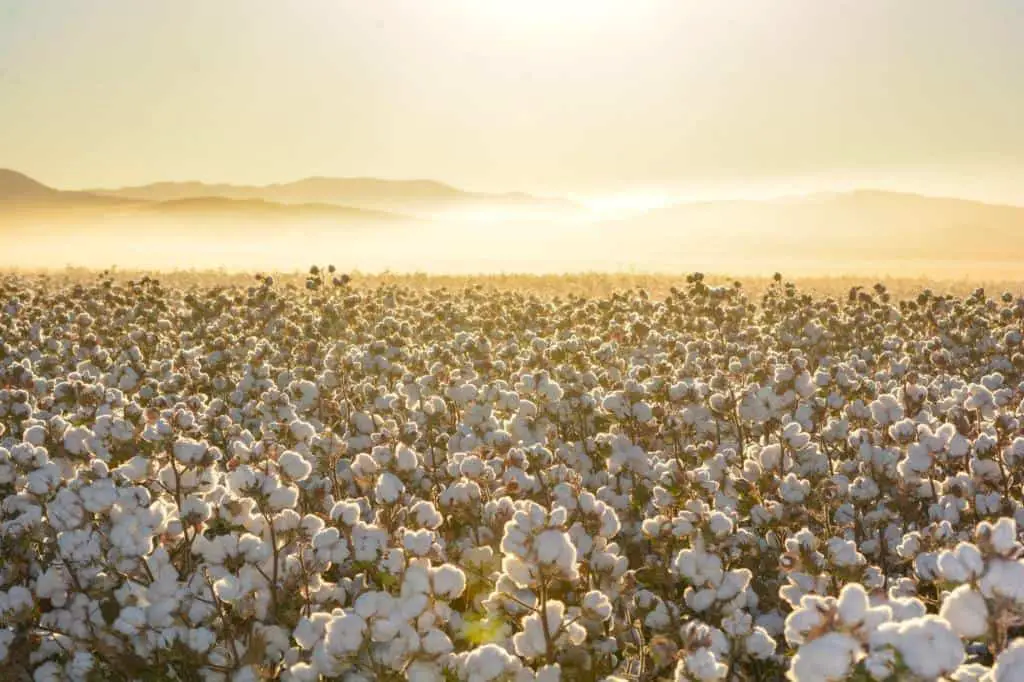
Cultivating cotton plants in black soil comes with several advantages. The soil’s inherent fertility minimizes the need for excessive fertilization. Moisture retention capabilities alleviate the impact of drought, providing a stable water supply to plants. The natural nutrient balance in black soil reduces the reliance on external nutrient sources.
However, challenges do exist. The clayey nature of black soil can lead to waterlogging under excessive rainfall, which may hinder root growth and oxygen availability. Proper drainage strategies become imperative to counteract this. Additionally, the tendency to form hard clods when dry can make seedbed preparation a meticulous task.
To harness the benefits of black soil while mitigating its challenges, careful soil management is essential. Strategic drainage planning, timely irrigation, and proper tillage techniques can help prevent waterlogging and improve soil structure. Crop rotation and cover cropping also aid in maintaining soil health and structure.
Cotton Varieties and Adaptation to Black Soil
Certain cotton varieties exhibit higher adaptability to specific soil types. In the case of black soil, varieties with deep root systems and disease resistance tend to excel. These varieties are optimized to leverage the soil’s moisture retention and nutrient-rich characteristics.
Genetic diversity within cotton varieties plays a pivotal role in their adaptation to different soil conditions. Breeding programs focus on enhancing traits like root length, drought tolerance, and nutrient uptake efficiency. These traits enable cotton plants to better navigate the challenges posed by black soil.
Here is a list of cotton varieties that can grow in black soil:
- ST 4595 B3XF: This is an early-mid maturity variety widely adapted across the Cotton Belt with strong yield potential and a good fiber package.
- DP 2239 B3XF: This is a mid-maturity Bollgard 3 XtendFlex cotton variety with outstanding characteristics.
Please note that these are just a few examples of cotton plant varieties that can grow in black soil. There may be other varieties available as well. It is always recommended to consult with local agricultural experts or seed companies for specific recommendations based on your region and soil conditions.
Selecting the right cotton variety for black soil is paramount. It ensures that the genetic traits align with the soil’s characteristics, enhancing the chances of a successful harvest. Tailoring cotton varieties to the soil type contributes to overall crop sustainability and yield.
Soil Preparation and Management for Cotton Planting
Effective soil preparation is the foundation of successful cotton cultivation. In the case of black soil, plowing and tilling are employed to break up compacted layers and improve soil structure. Proper leveling ensures uniform water distribution.
Soil testing is a vital step in understanding the nutrient composition of black soil. Analyzing nutrient levels and identifying deficiencies guide the application of fertilizers. This precision ensures that cotton plants receive the necessary nutrients for optimal growth.
Applying nutrients judiciously is essential to maximizing cotton yield. Proper nutrient management considers factors like soil nutrient levels, crop requirements, and environmental considerations. This approach minimizes nutrient waste and reduces the risk of environmental contamination.
In conclusion, the potential for cotton to successfully grow in black soil is a dynamic interplay between soil characteristics, crop genetics, and strategic management. While black soil offers distinct advantages such as fertility and moisture retention, it also presents challenges like waterlogging.
Through informed practices like proper drainage and variety selection, cotton cultivation in black soil can yield promising results. This harmony between nature and agricultural practices holds the promise of sustaining a vital global industry.
Nurturing Cotton Plants in Black Soil
Cotton plants, like any other crop, require attentive care to flourish in black soil. The success of cotton cultivation is closely linked to water management, nutrient application, and pest control.
- Irrigation emerges as a pivotal practice in nurturing cotton plants. Striking a balance between adequate moisture and preventing waterlogging is essential. Frequent but controlled irrigation ensures that the soil retains moisture without depriving the roots of oxygen. Employing water-saving methods like drip irrigation optimizes water usage while meeting plant needs.
- The nutrient-rich nature of black soil serves as a canvas for healthy cotton growth. Complementing this with fertilization practices enriches the soil further. Selecting appropriate fertilizers that align with soil nutrient levels enhances cotton’s nutrient uptake. Timing fertilizer applications during critical growth stages ensures the plant’s nutritional requirements are met.
- Pest and disease management is an integral part of cotton care. Tailoring strategies to the specific challenges posed by black soil enhances plant health. Implementing integrated pest management techniques, which include biological controls and resistant varieties, helps protect the cotton crop from potential threats.
List Of Crops Suitable For Black Soil
The rich expanse of black soil presents a fertile and productive soil for a diverse range of crops to flourish. Its unique composition, characterized by high nutrient content and moisture retention, makes it an inviting bed for cultivation. Let’s delve into a comprehensive list of crops that find a favorable habitat in the embrace of black soil.
1. Cotton: Black soil’s moisture-holding capacity provides an ideal setting for cotton cultivation, fostering healthy fiber growth.
2. Soybeans: The nutrient-rich nature of black soil supports soybean production, yielding protein-rich legumes.
3. Chickpeas: Chickpeas thrive in black soil, benefiting from its well-balanced moisture and nutrient levels.
4. Sunflowers: These vibrant blooms prosper in black soil, leveraging its nutrients for robust stem and seed development.
5. Sorghum: Black soil provides a sturdy foundation for sorghum, aiding in its growth and nutrient absorption.
6. Peanuts: The soil’s composition aids peanut growth, enhancing their development beneath the surface.
7. Millets: Various types of millets, like pearl millet and finger millet, find a suitable home in black soil, bolstering their grain production.
8. Lentils: Lentil plants thrive in this environment, producing nutritious legumes with the help of the soil’s ample nutrients.
9. Linseed: Black soil promotes linseed cultivation, contributing to the production of oil-rich seeds.
10. Castor: Castor plants flourish in this soil, yielding castor beans that are used for oil extraction and other applications.
11. Tobacco: The unique characteristics of black soil enhance the flavor and quality of tobacco leaves.
Which Soil is Best for Growing Cotton?
Cotton can grow in almost all well-drained soils, but some soils are more suitable for achieving high yields. The following are the types of soil that are ideal for growing cotton:
- Black Soil: Black soil is appropriate for the growth of cotton because it has a high clay content and a good capacity to retain water. It is rich in calcium and potash, making it suitable for growing cotton.
- Sandy Loam Soil: Deep well-drained sandy loam soils, with enough clay, organic matter, and a moderate concentration of nitrogen and phosphorus, are considered suitable soils for achieving high yields.
- Loamy Soil: The best yields are often achieved in loamy soils that are rich in calcium carbonate.
Cotton thrives in soil that has good drainage and can hold water. The cotton plant suffers from excessive wetness and waterlogging. Cotton grows best in soil with a pH between 5.8 to 8.0. Yield decreases are usually not severe until the soil pH drops below 5.5 to 5.2 on sandy loam and silt soils.
FAQs on Cotton Crop and Black Soil Interaction
What are the benefits of growing cotton in black soil?
Growing cotton in black soil offers enhanced water retention and nutrient balance, promoting healthy plant growth. This soil’s fertility contributes to higher cotton yields and improved fiber quality.
How does black soil affect cotton plant growth?
Black soil’s water-holding ability provides a consistent moisture supply to cotton plants, aiding their growth and development. Its balanced nutrient content supports lush foliage and boll formation.
What are the challenges of cultivating cotton in black soil?
Despite its benefits, black soil’s clayey nature can lead to waterlogging, affecting cotton roots. Proper drainage management and cautious irrigation are crucial to mitigate this challenge.
Are there specific cotton varieties adapted to black soil?
Yes, certain cotton varieties are bred to excel in black soil conditions. They possess traits that enhance root penetration, water utilization, and nutrient absorption.
Can cotton grow successfully in other soil types apart from black soil?
While black soil is favorable, cotton can adapt to other soil types with proper management. However, black soil’s characteristics align well with cotton’s growth requirements.


